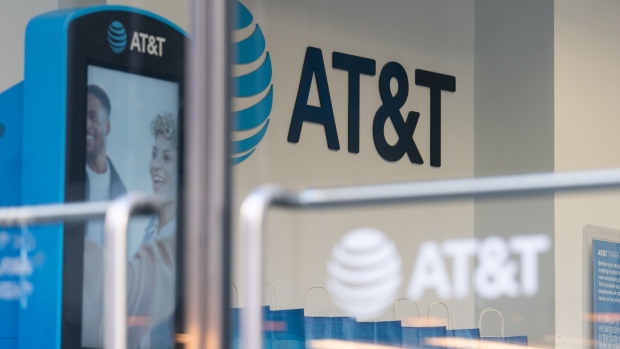Feb 22, 2024
AT&T Outage Turns Start of US Workday Into the ‘Apocalypse’
, Bloomberg News

(Bloomberg) -- The Metra express train from Chicago’s southern suburbs into downtown's Loop Thursday morning was a very odd scene. People were reading books or just staring out the window — few were actually getting work done.
“For a minute I thought it was the apocalypse,” said Emma Smits, a public relations account executive who generally spends the hour-long train commute prepping for client calls, pitching reporters and catching up on overnight tasks.
Every so often, her fellow commuters turned their phones off and on to try and catch a cellular signal in a futile attempt to send some emails or get work done. But one never came, thanks to a nationwide service outage on AT&T Inc. that disrupted millions.
“I couldn’t cross anything off my work to-do list,” Smits, an AT&T customer, said. “Only that one person who brought a book was satisfied.”
Missed meetings, frustrated clients, staffers left in the dark — the outage sent American workers into a tailspin Thursday.
Chris Gormley, chief executive officer of a health-care startup, missed an important fundraising call. Nikita Walia, owner of a brand strategy agency in Brooklyn, was “panicked” about not being able to reach clients or access accounts requiring two-step authentication. Jonathan Huntress, a construction manager in Texas, couldn’t reach his crews or find files in his Dropbox account. Ria Michelle couldn’t get picked up for work in Miami Beach this morning as her ride couldn’t access GPS.
Meanwhile, return-to-office holdouts worked blissfully uninterrupted using at-home Wi-Fi. Remote work proponents argue that the vagaries of the daily commute are what often keep people working from home for extended periods. Working remotely saves people in the US 55 minutes a day on average, according to research led by Stanford University economist Nicholas Bloom. Many daily commuters make up for the lost time by getting work done on their phones. On Thursday that wasn’t entirely possible for AT&T customers.
“My phone is the most important tool for my business,” said Mick McKeown, who runs a government contracting firm in Washington. “I couldn't connect via phone with my clients and staff.”
Workarounds to the problem abounded, sending some back to simpler times. Vanessa Stowe had to screenshot directions to a morning meeting “like it’s 2009 Mapquest.” Sarah Kittel, a communications strategist, had to connect to a nearby restaurant’s Wi-Fi to pay for parking.
“So much of our work and lives depend, sadly or otherwise, on our ability to be reached or reach others at a touch of a button,” Kittel said. “That simply didn't happen this morning.” Cate Luzio, traveling from New York to Washington for a big client event, was more blunt: “It was a mess.”
It wasn’t immediately clear how many wireless customers were affected by the outage. AT&T is the third-largest US retail wireless carrier with about 87 million subscribers. Problems spanned New York, Houston, Atlanta, Miami, Chicago and Dallas. Customer service representatives for the company said on X that they had confirmed “an active nationwide outage.”
AT&T said that three-quarters of the mobile network has been restored, but some are still without access. The cause of the hours-long disruption is not yet clear.
It’s impossible to say how much productivity was lost so far, but certainly some. “I definitely feel like I’m a step behind today,” Smits said.
--With assistance from Charlotte Hampton.
©2024 Bloomberg L.P.





